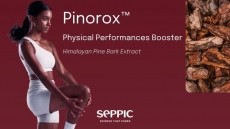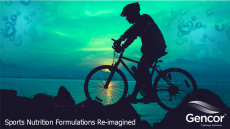Niagen study confirms NAD+ boost, points to future opportunities in blood pressure, arterial stiffness endpoints

The latest study on the ingredient was conducted by a team of researchers at the University of Colorado in Boulder led by Doug Seals, PhD and Christopher Martens, PhD. The double blind, placebo controlled trial looked at a 500 gram, twice daily dose of the ingredient. The results provide evidence that chronic supplementation with the ingredient is effective at raising levels of nicotinamide adenine dinucleotide (NAD+) by 60%.
NAD+ is a coenzyme found in every cell of the body but is especially important in the proper functioning of mitochondria. The levels of this coenzyme tend to decline with age, which is one of the theorized mechanisms for progressive cellular senescence. And it forms the basis for ChromaDex’s anti-aging positioning for the ingredient.
"This was the first ever study to give this novel compound to humans over a period of time," said Seals, a professor and researcher in the Department of Integrative Physiology at CU. "We found that it is well tolerated and appears to activate some of the same key biological pathways that calorie restriction does."
For the study, published in the journal Nature Communications, Seals and lead author Chris Martens, then a postdoctoral fellow at CU Boulder, recruited 30 lean and healthy men and women ages 55 to 79 from the Boulder area, of whom 24 completed the study.
Half took a placebo for the first six weeks, then took a 500 mg twice-daily dose of nicotinamide riboside (NR) chloride (NIAGEN). The other half took NR for the first six weeks, followed by placebo. Blood samples were drawn and other physiological measures were made at the end of the treatment period. No adverse events were observed.
Future avenues for research
Among the other physiological measurements, the researchers noted an improvement in markers of arterial health, which offers avenues for future research on the ingredient.
“Exploratory analyses of the effects of chronic NR supplementation on physiological function in this cohort of healthy middle-aged and older adults suggest that the potential for reducing systolic blood pressure and arterial stiffness may be the most promising hypotheses to investigate in future larger-scale clinical trials, particularly in individuals with elevated baseline blood pressure,” they wrote.
“Nearly 60% of the US population, mostly middle-aged and older adults, have elevated blood pressure or stage 1 hypertension, and nearly two-thirds of cardiovascular related events (such as heart attacks) occur in individuals with blood pressure in this range. Though larger scale clinical studies will be needed to assess these endpoints further, these results provide a solid direction for future work,” Martens said.
Building a suite of evidence
Frank Jaksch, CEO of ChromaDex, said that the study builds on previous work the company has done on the ingredient. A study published in 2016 compared three doses (100 mg, 300 mg and 1000 mg/day) of NR to other forms of niacin, or vitamin B3, and their effect in boosting NAD+. That study found that NR performed best of the three. A second study, whose more detailed results are still in the peer review process, was run on the ingredient, Jaksch said.
“The second study was run at the same 3 doses. We saw an increase at all 3 doses as well as a dose response for increasing NAD,” Jaksch said.
Source: Nature Communications
“Chronic nicotinamide riboside supplementation is well-tolerated and elevates NAD+ in healthy middle-aged and older adults”
Article number: 1286 (2018) doi:10.1038/s41467-018-03421-7
Authors: Martens CR, Denman BA, Mazzo MR, et al.
















